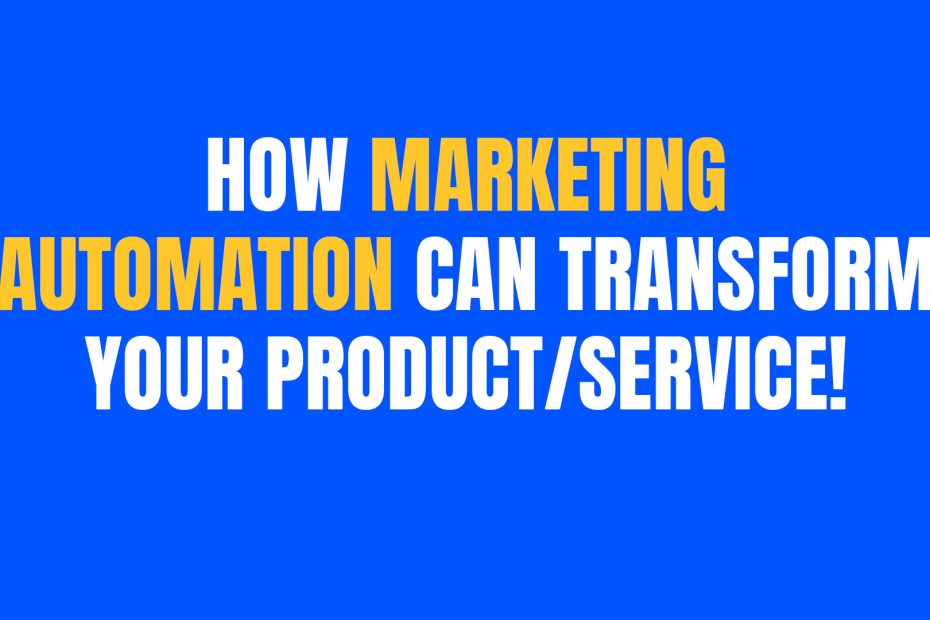In today’s fast-paced digital landscape, businesses are constantly seeking innovative ways to optimize their marketing strategies and drive growth. Marketing automation has emerged as a powerful tool that can revolutionize the way businesses engage with their customers, streamline processes, and achieve remarkable results. In this article, we will delve into the benefits and best practices of marketing automation, equipping you with the knowledge to elevate your business to new heights.
Understanding Marketing Automation
At its core, marketing automation refers to the use of technology to automate repetitive marketing tasks, allowing businesses to deliver highly personalized and relevant content to their target audience at the right time. By leveraging marketing automation, you can nurture leads, enhance customer experiences, and ultimately drive conversions.
Unleashing the Benefits
1. Enhanced Lead Generation and Nurturing
Marketing automation empowers you to generate and nurture leads more effectively than ever before. By implementing strategic lead capture forms, engaging landing pages, and personalized email campaigns, you can attract potential customers and guide them through the sales funnel with precision. The ability to deliver tailored content based on user behavior and preferences significantly increases the chances of converting leads into loyal customers.
2. Increased Operational Efficiency
In a fast-paced business environment, time is a valuable resource. Marketing automation allows you to automate repetitive tasks, such as email marketing, social media posting, and lead scoring. By freeing up your team’s time, you can redirect their efforts towards more strategic initiatives, such as campaign optimization, data analysis, and creative content creation. This increased efficiency leads to higher productivity and overall business growth.
3. Personalization at Scale
Delivering personalized experiences to your customers has become a fundamental aspect of successful marketing. Marketing automation tools enable you to segment your audience based on various criteria, such as demographics, behavior, and purchase history. Armed with this data, you can craft highly targeted campaigns that resonate with individual customers, fostering stronger connections and driving brand loyalty.
4. Improved Customer Engagement and Retention
Maintaining strong relationships with your existing customers is crucial for long-term success. Marketing automation facilitates proactive engagement through automated email sequences, personalized recommendations, and timely notifications. By staying top-of-mind and delivering valuable content, you can nurture customer loyalty, reduce churn rates, and maximize customer lifetime value.
Best Practices for Marketing Automation
To harness the full potential of marketing automation, it is essential to follow these best practices:
1. Set Clear Goals and Objectives
Before diving into marketing automation, define your goals and objectives. Are you aiming to increase lead generation, drive conversions, or improve customer retention? By clearly outlining your objectives, you can tailor your automation strategy accordingly and measure its success effectively.
2. Understand Your Audience
Effective marketing relies on a deep understanding of your target audience. Conduct thorough market research to identify their pain points, preferences, and behaviors. Leverage this knowledge to segment your audience and deliver personalized content that resonates with their needs and interests.
3. Craft Compelling and Relevant Content
Content lies at the heart of successful marketing automation. Create high-quality, informative, and engaging content that provides value to your audience. Whether it’s educational blog posts, captivating videos, or interactive infographics, invest in content that positions your brand as a thought leader in your industry.
4. Implement Tracking and Analytics
To optimize your marketing automation efforts, leverage robust tracking and analytics tools. Monitor key performance indicators (KPIs), such as click-through rates, conversion rates, and engagement metrics. By analyzing the data, you can identify areas for improvement, fine-tune your strategies, and achieve better results.
Benefits Of Marketing Automation:
There are various benefits of marketing automation that can greatly impact lead generation and nurturing strategies. It enables businesses to effortlessly capture and qualify leads, saving valuable time and resources. Through personalized and targeted communication, marketing automation nurtures leads by delivering the right message to the right audience at the right time. It also automates lead scoring, prioritizing high-quality leads and maximizing conversion rates. Additionally, marketing automation allows businesses to track and analyze customer behavior, gaining valuable insights and optimizing marketing campaigns.
By implementing marketing automation, businesses can enhance customer engagement and personalization, resulting in increased engagement and brand loyalty. They can deliver personalized content tailored to each customer’s preferences, needs, and buying journey. Triggered email campaigns based on customer behavior and interactions can be implemented, and audience segmentation ensures relevant and timely messages, leading to higher open and click-through rates. Dynamic content can adapt messaging based on real-time customer data, enhancing the overall customer experience.
Marketing automation bridges the gap between marketing and sales teams, fostering alignment and collaboration. It streamlines marketing and sales processes by automating lead handoff, providing detailed lead information to sales teams, and enabling tracking of prospect engagement. Integration of marketing automation with customer relationship management (CRM) systems provides a unified view of customer interactions.
Furthermore, marketing automation significantly enhances campaign performance and return on investment (ROI). A/B testing capabilities optimize email subject lines, content, and calls-to-action, while automated campaign workflows eliminate manual processes and reduce errors. Real-time analytics and reporting allow for tracking campaign performance and making data-driven decisions. Improved campaign attribution accurately measures the impact of each marketing activity.
Conclusion
In an era of fierce competition, embracing marketing automation can give your business a significant advantage. By implementing a well-designed automation strategy, you can enhance lead generation, nurture customer relationships, and drive revenue growth. Remember to align your automation efforts with clear goals, understand your audience, create compelling content, and leverage data-driven insights. Embrace the power of marketing automation, and propel your business towards sustained success. Marketing automation has the potential to revolutionize the way businesses interact with their customers and manage their marketing efforts. While it offers numerous benefits, it may not be a one-size-fits-all solution for every product or service. Assessing your business goals, understanding the complexity of your sales funnel, and evaluating the integration capabilities of automation platforms are crucial steps in determining the suitability of marketing automation for your business. By considering these factors and overcoming potential challenges, you can harness the power of marketing automation to streamline your marketing processes, drive better results, and create meaningful customer experiences.
Remember, marketing automation is a powerful tool, but it requires a thoughtful approach and continuous optimization to maximize its potential. Keep the needs and preferences of your target audience in mind, and adapt your strategies accordingly. With the right implementation and effective utilization of marketing automation, you can unlock new opportunities for growth and success in today’s digital era.





